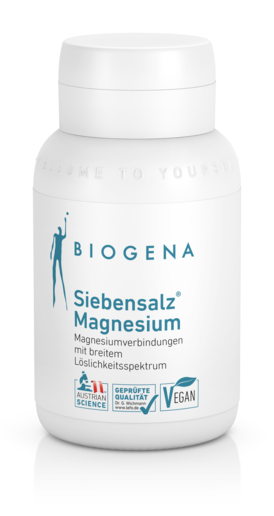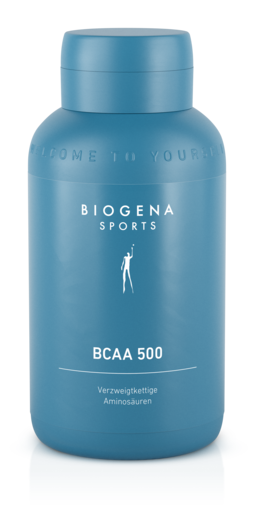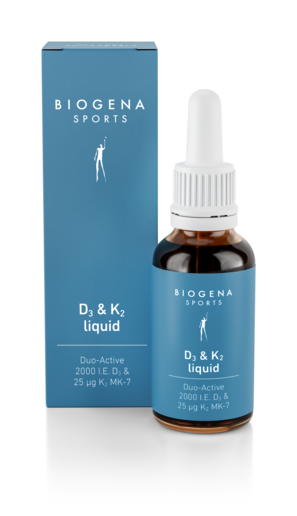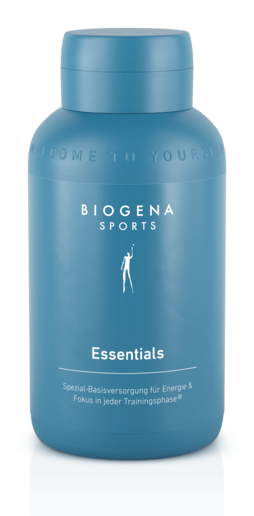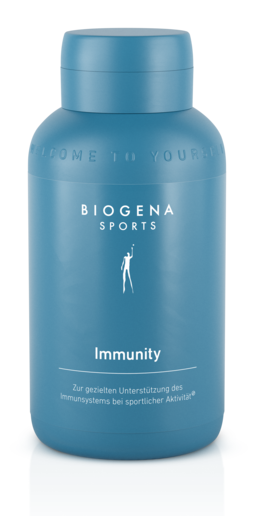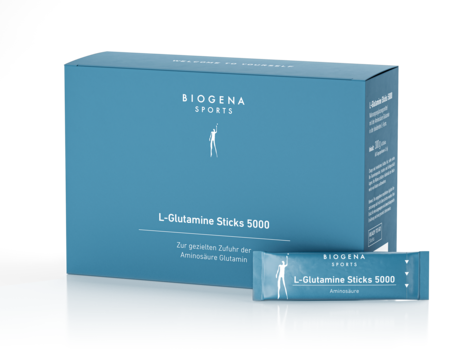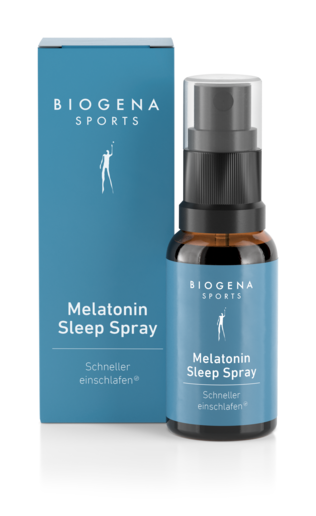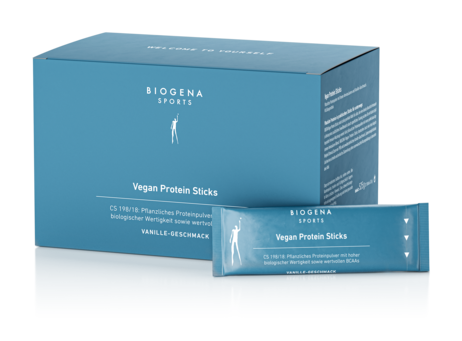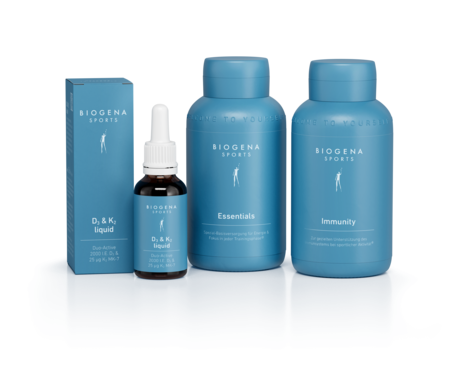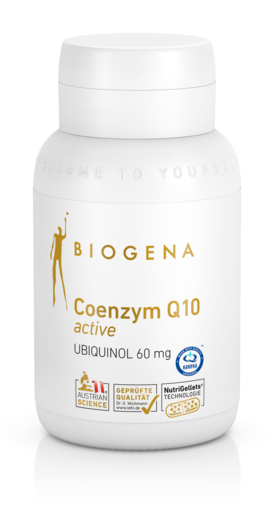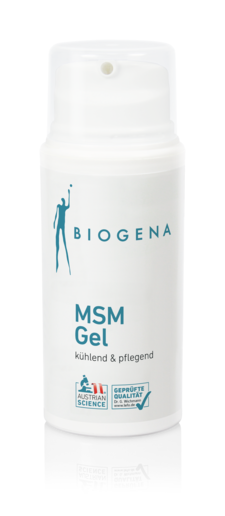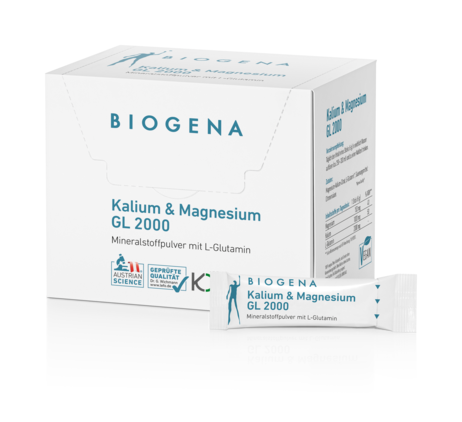Sports
In addition to regular training and a sensible diet, micronutrients are important companions that can support us in every phase of training. Well nourished, body and mind are optimally attuned to peak performance.



Exercise - a cornerstone of health
In addition to a balanced diet, sport and exercise are among the essential protective factors for our health. Physical activity triggers various processes in us: among other things, the metabolism is boosted and happiness hormones are released. Our brain and heart receive better blood flow during exercise sessions, resulting in improved physical and mental health. This applies to the heart and circulation as well as to the muscles, the immune system, the bones and also hormonal metabolic processes. In combination with a needs-based diet that is rich in nutrients, sport forms the cornerstone of sensible precautions for your own health. Ideally, endurance, mobility and strength training are combined. This increases mobility and promotes muscle building.
Our bodies are capable of achieving peak performance and managing more than we think is possible. To ensure everything runs smoothly, the metabolism requires a variety of different nutrients.
Which nutrients & supplements are useful in sports?
Anyone who works out and sweats on a regular basis should take care to ensure they’re getting a good supply of nutrients. High-quality sports supplements (such as specialised nutrient combinations or a protein powder with high biological value) can support the supply of essential nutrients, providing effective nutritive support during training, competition and recovery.
Certain micronutrients are particularly helpful for different types of sports and different requirements. The following table provides a quick overview of which nutrients can provide the body with the best support in which areas.
System | Nutritive training companions |
Immune system | |
Muscles | Amino acids are the building blocks of proteins2. Helpful nutrients: magnesium 3 |
Endurance | Magnesium, iron, calcium, B vitamins4 |
Nerves & concentration |
Nutrients to support muscle building & regeneration: protein, special amino acids and zinc
As well as controlling your body’s movements, the skeletal muscles also serve to stabilise the spine and joints together with tendons and ligaments. So strengthening them is not only a good idea for optimising sporting performance, but also for preventing injuries. Amino acids and proteins play a central role in muscle formation and regeneration after periods of high stress. Both processes depend on the quantity and quality of your daily protein intake. High-quality protein powders can be used in combination with growth stimuli - whether that’s sport, training or manual work - in a targeted manner to help you build up muscle mass2). or strength training, many athletes swear by the branched-chain amino acids L-leucine, L-isoleucine and L-valine (BCAAs) contained in protein powders, while endurance athletes prefer the amino acid L-glutamine. With a share of about 20%, glutamine is the main component of the pool of free amino acids found in blood plasma, whereby the highest concentration can be found in the muscles.
In addition to high-quality protein supplements, taking a zinc supplement can also be useful. The trace element supports cell division and contributes to normal testosterone levels in the blood.
Nutrients to support regeneration: melatonin
Sleep is THE regeneration booster par excellence. While you sleep at night, the body repairs itself through the release of growth hormones and the formation of new immune cells. The muscles relax, heart rate and blood pressure drop and the detoxification process run at full speed.
Sport and strenuous physical work cause inflammation in the body. The elimination of this inflammation is central to the body's own self-healing powers and takes place more intensively while you sleep. If you don’t get enough sleep, these processes are not completed and can become a problem in the long run. This is why people who play sports or do hard physical labour have a greater need for sleep.
Unfortunately, falling (and staying) asleep does not always come easily, even for athletes. If you struggle to get enough sleep, it can be useful to take melatonin: 1mg of melatonin taken shortly before going to bed helps to shorten the time it takes to fall asleep. So you’ll be well-rested and ready for an active day.
Nutritional supplements in weight training
Weightlifting, body building, power lifting: these are the classic strength sports. However, strength training is also important for performance in high-speed sports (like football, handball, martial arts) and resistance sports (like climbing, rowing, swimming), as well as classic endurance sports. As mentioned above, amino acids and proteins play a central role in muscle formation and regeneration. In combination with growth stimuli, these contribute to the maintenance and increase of muscle mass. High-quality protein supplements can be used in a targeted manner, especially after periods of prolonged exertion. Combining this with a zinc supplement can also be useful. The versatile trace element has a supporting function in cell division and contributes to maintaining normal testosterone levels in the blood.
Food supplements that support endurance: B vitamins etc.
If you exercise your endurance levels, you not only need staying power mentally, but you also need good stamina physically. An optimal energy supply in the mitochondria – the power plants of our body cells – is particularly important for endurance athletes. In these tiny cell organelles, the energy-producing food components are converted into usable energy. Certain B vitamins (B1, B2, B6, biotin, niacin, pantothenic acid) as well as iron, iodine and magnesium, which contribute to the normal energy metabolism, are indispensable for this process. Vitamin B6 in particular contributes to a normal protein and glycogen metabolism. Zinc6) and chromium7) also play a role here. They are therefore the ideal training companions for all endurance sports, where we have to dig deep into our energy reserves.
Fitness supplements for beginners
High-quality multi-vitamins are the ideal nutritive introduction for getting started in sports. Vitamins and minerals are among the most popular supplements, in general as well as in sports. Cleverly combined preparations of vitamins and minerals offer a sensible basic supply for beginners.
Which nutrients can athletes have an increased need for?
In addition to hard training sessions, top athletic performance also requires a good supply of nutrients. Due to the increased energy turnover, athletes have an increased need for vitamins B1, B2 and niacin. According to the German Nutrition Society (DGE), any additional requirement should be covered in the course of a balanced and varied diet.
Nevertheless, there are other nutrients that athletes should also keep an eye on: according to the DGE, these include vitamin D, iron and calcium, as well as sodium in certain situations (e.g. with an unbalanced diet, weight loss, long-term endurance training). Here, nutrient balance is influenced by the type of sport, the intensity and extent of exercise, diet as well as individual factors (such as gender, training conditions, sweat composition, sweating intensity and dietary behaviour).
Nutrient tip: athletes who follow a vegan or vegetarian diet should also pay close attention to the supply of biologically high-quality protein.
Immune system support: Zinc, selenium, vitamin C, iron, vitamin D
For long-term athletes, arming the immune system is also important. Zinc, selenium, vitamin C and vitamin E are all involved in protecting the cells from oxidative stress. Vitamins C and E are not only antioxidants, they are also a strong team that rely on each other. The body needs sufficient vitamin C in order to regenerate vitamin E.
A good supply of iron, selenium and zinc contributes to the normal functioning of the immune system. Iron and vitamin C also play an important role in energy metabolism and thus contribute towards reducing tiredness and fatigue. The power substance vitamin D, which has a key function in the human body, also plays a significant role in the immune system. Studies have also shown that a good supply of vitamin D supports muscle function.
Nutritional supplements for mental strength
Particularly in competitions, mental strength is required in addition to physical strength. Mental strength can be trained through relaxation techniques and supported by a balanced diet. Micronutrients such as vitamins B1, B6 and B12 can contribute to the functioning of the nervous system and psyche. It is not for nothing that B vitamins are also called nerve vitamins. Particularly noteworthy in this context is pantothenic acid, which contributes to normal mental performance.
Magnesium also plays a role here because it supports the functions of the nerves and psyche.
Vegan food supplements in sport
More and more athletes are opting for a vegetarian or even vegan diet. However, especially when it comes to a vegan diet, good nutrient coverage is not always a given. So it’s all the more important to keep a close eye on certain nutrients. These include vitamins B12 and D, calcium, zinc, iodine and iron. Protein intake is lower in vegan athletes compared to those who consume animal products. Special vegan sports supplements are designed to support athletes especially in those areas where it is more difficult to meet requirements via the vegan diet.
Cologne List®
The use of nutritional supplements is widespread among athletes at all levels of sport in certain phases of their everyday training. Unfortunately, however, contaminated supplements repeatedly lead to positive doping tests. As a sports initiative, the Cologne List® has therefore set out to protect athletes from unintentional doping offences. In order to offer them the best possible safety, the list only carries supplements with a minimised doping risk that have been tested for selected anabolic steroids and stimulants by a world-leading laboratory in the analysis of dietary supplements for doping substances.
The partnership with the Cologne List® is our voluntary commitment to ethical sports. Our products BIOGENA SPORTS – Essentials, BIOGENA SPORTS – Immunity, BIOGENA SPORTS – BCAA 500, L-Glutamine Sticks 5000 and BIOGENA SPORTS – Melatonin Sleep Spray have been tested for selected doping substances as part of the Cologne List® – without any objections.
Conclusion: Micronutrients as support for training
Nutrients provide energy or structural components to build muscles and other tissues and support metabolism. In addition to regular exercise, optimal performance requires an adequate supply of nutrients. This results in a balanced diet, possibly in a targeted combination with various vitamins, minerals and trace elements that can support every training phase. Our musculoskeletal system, our muscles, our immune system, our mental strength and our cardiovascular system benefit from a good supply of the right nutrients.
1200mg of vitamin C on top of the recommended daily dose contributes to healthy immune system function during and after intense physical activity. Vitamin D, zinc and selenium support the immune system and protect the cells from oxidative stress.
2Proteins contribute to the increase and maintenance of muscle mass.
3Magnesium contributes to normal muscle function and plays a role in reducing fatigue and tiredness, balancing electrolytes and energy metabolism.
4B vitamins (B1, B2, B6, biotin), iron and calcium are involved in regular energy metabolism.
5Vitamins B1, B2, B6, B12 as well as niacin and biotin support and maintain the normal function of the nervous system. Vitamins B1, B6, B12 as well as folic acid, niacin and biotin contribute to stable mental function. Pantothenic acid plays a role in normal mental performance.
6Zinc contributes to the normal metabolism of carbohydrates, macronutrients and fatty acids. Zinc also contributes to normal protein synthesis.
7 Chromium contributes towards the normal metabolism of macronutrients.
Frequently asked questions
If you demand a lot from your body, it’s important to replenish it with the appropriate nutrients. A basic supply for athletes, a high-quality amino acid preparation - as well as L-glutamine and/or melatonin if needed - can support athletes in training, competition and recovery.
Intense physical activity not only leads to an increased energy requirement, but also to an increased need for metabolically relevant vitamins, minerals and trace elements. The nutrients requirement should be covered by a balanced and varied diet. However, depending on the situation, individually tailored supplements can be useful and helpful in certain phases.
